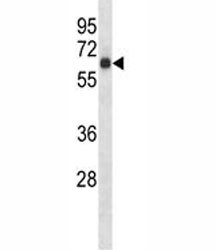Cookie preferences
This website uses cookies, which are necessary for the technical operation of the website and are always set. Other cookies, which increase the comfort when using this website, are used for direct advertising or to facilitate interaction with other websites and social networks, are only set with your consent.
Configuration
Technically required
These cookies are necessary for the basic functions of the shop.
"Allow all cookies" cookie
"Decline all cookies" cookie
CSRF token
Cookie preferences
Currency change
Customer-specific caching
FACT-Finder tracking
Individual prices
Selected shop
Session
Comfort functions
These cookies are used to make the shopping experience even more appealing, for example for the recognition of the visitor.
Note
Show the facebook fanpage in the right blod sidebar
Statistics & Tracking
Affiliate program
Conversion and usertracking via Google Tag Manager
Track device being used

| Item number | Size | Datasheet | Manual | SDS | Delivery time | Quantity | Price |
|---|---|---|---|---|---|---|---|
| NSJ-F43705-0.08ML | 80 µl | - | - |
3 - 10 business days* |
350.00€
|
||
| NSJ-F43705-0.4ML | 400 µl | - | - |
3 - 10 business days* |
755.00€
|
If you have any questions, please use our Contact Form.
You can also order by e-mail: info@biomol.com
Larger quantity required? Request bulk
You can also order by e-mail: info@biomol.com
Larger quantity required? Request bulk
In 1X PBS, pH 7.4, with 0.09% sodium azide. Rps6kb1 acts to integrate nutrient and growth factor... more
Product information "Anti-S6k1"
In 1X PBS, pH 7.4, with 0.09% sodium azide. Rps6kb1 acts to integrate nutrient and growth factor signals in regulation of protein synthesis, cell proliferation, cell growth, cell cycle progression and cell survival. Downstream effector of the mTOR signaling pathway. Phosphorylates specifically ribosomal protein S6 in response to insulin or several classes of mitogens. During translation initiation, the inactive form associatess with the eIF-3 complex under conditions of nutrient depletion. Mitogenic stimulation leads to phosphorylation and dissociation from the eIF-3 complex and the free activated form can phosphorylate other translational targets including EIF4B. Promotes protein synthesis by phosphorylating PDCD4 at 'Ser-67' and targeting it for degradation. Phosphorylates RICTOR leading to regulation of mammalian target of rapamycin complex 2 (mTORC2) signaling, probably phosphorylates RICTOR at 'Thr-1135'. Phosphorylates IRS1 at multiple serine residues coupled with insulin resistance, probably phosphorylates IRS1 at 'Ser-270'. Required for TNF-alpha induced IRS-1 degradation. Phosphorylates EEF2K in response to IGF1 and inhibits EEF2K activity. Phosphorylates BAD at 'Ser-136' in response to IGF1 leading to BAD inactivation and inhibition of BAD-induced apoptosis. Phosphorylates mitochondrial RMP leading to dissociation of a RMP:PPP1CC complex, probably phosphorylates RMP at 'Ser-136'. The free mitochondrial PPP1CC can dephosphorylate RPS6KB1 at Thr-412 which is proposed to be a negative feed back mechanism for the RPS6KB1 antiapoptotic function. Phosphorylates POLDIP3 (By similarity). Protein function: Serine/threonine-protein kinase that acts downstream of mTOR signaling in response to growth factors and nutrients to promote cell proliferation, cell growth and cell cycle progression. Regulates protein synthesis through phosphorylation of EIF4B, RPS6 and EEF2K, and contributes to cell survival by repressing the pro-apoptotic function of BAD. Under conditions of nutrient depletion, the inactive form associates with the EIF3 translation initiation complex. Upon mitogenic stimulation, phosphorylation by the mammalian target of rapamycin complex 1 (mTORC1) leads to dissociation from the EIF3 complex and activation. The active form then phosphorylates and activates several substrates in the preinitiation complex, including the EIF2B complex and the cap-binding complex component EIF4B. Also controls translation initiation by phosphorylating a negative regulator of EIF4A, PDCD4, targeting it for ubiquitination and subsequent proteolysis. Promotes initiation of the pioneer round of protein synthesis by phosphorylating POLDIP3/SKAR. In response to IGF1, activates translation elongation by phosphorylating EEF2 kinase (EEF2K), which leads to its inhibition and thus activation of EEF2. Also plays a role in feedback regulation of mTORC2 by mTORC1 by phosphorylating RICTOR, resulting in the inhibition of mTORC2 and AKT1 signaling. Mediates cell survival by phosphorylating the pro-apoptotic protein BAD and suppressing its pro-apoptotic function. Phosphorylates mitochondrial RMP leading to dissociation of a RMP:PPP1CC complex. The free mitochondrial PPP1CC can then dephosphorylate RPS6KB1 at Thr-412, which is proposed to be a negative feedback mechanism for the RPS6KB1 anti- apoptotic function. Mediates TNF-alpha-induced insulin resistance by phosphorylating IRS1 at multiple serine residues, resulting in accelerated degradation of IRS1. In cells lacking functional TSC1- 2 complex, constitutively phosphorylates and inhibits GSK3B. May be involved in cytoskeletal rearrangement through binding to neurabin. Phosphorylates and activates the pyrimidine biosynthesis enzyme CAD, downstream of MTOR. [The UniProt Consortium]
| Keywords: | Anti-S6K, Anti-S6K1, Anti-Rps6kb1, Anti-P70S6K1, Anti-p70 S6KA, Anti-p70-S6K 1, Anti-S6K-beta-1, EC=2.7.11.1, Anti-p70 S6K-alpha, Anti-p70 S6 kinase alpha, Anti-p70 ribosomal S6 kinase alpha, Anti-Ribosomal protein S6 kinase I, S6k1 Antibody |
| Supplier: | NSJ Bioreagents |
| Supplier-Nr: | F43705 |
Properties
| Application: | WB, ELISA |
| Antibody Type: | Polyclonal |
| Conjugate: | No |
| Host: | Rabbit |
| Species reactivity: | human, mouse |
| Immunogen: | A portion of amino acids 481-509 from the mouse protein was used as the immunogen for this S6k1 antibody. |
| Format: | Purified |
Database Information
| KEGG ID : | K04688 | Matching products |
| UniProt ID : | Q8BSK8 | Matching products |
| Gene ID : | GeneID 72508 | Matching products |
Handling & Safety
| Storage: | -20°C |
| Shipping: | +4°C (International: +4°C) |
Caution
Our products are for laboratory research use only: Not for administration to humans!
Our products are for laboratory research use only: Not for administration to humans!
Information about the product reference will follow.
more
You will get a certificate here
Viewed


